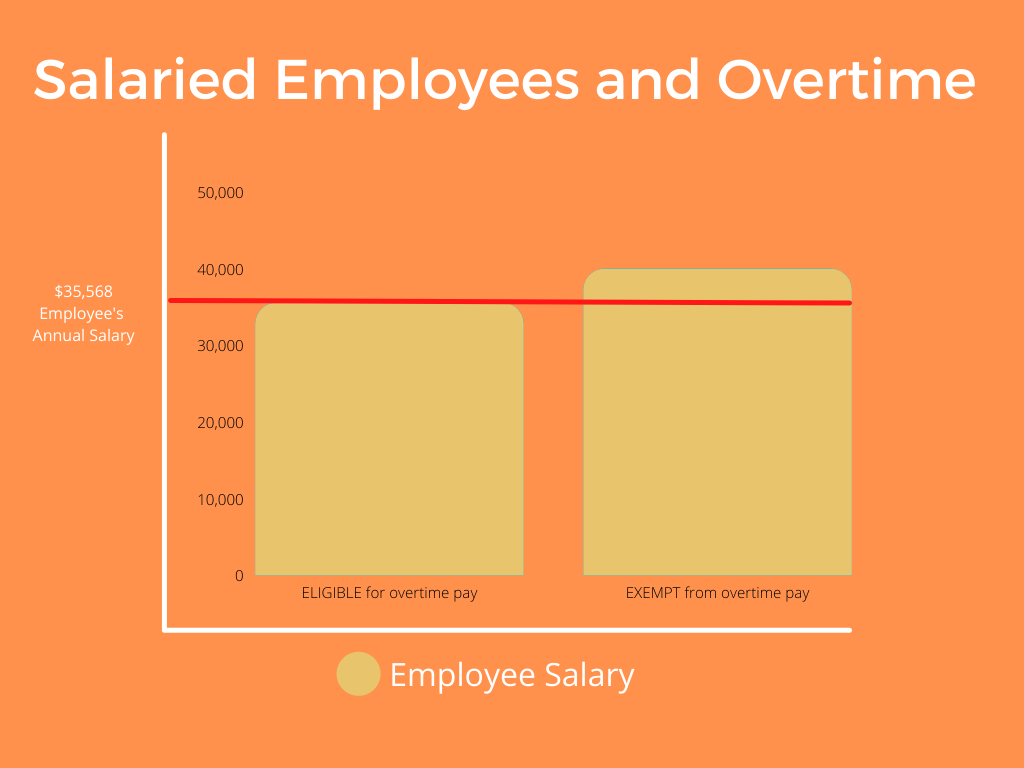Which Salaried Employees Can Receive Overtime
As of December 1, 2016, the ceiling for mandatory overtime payment will be a salary of $684 per week or $35,568 per year for white collar workers. This means that many — but not all — employees with a yearly salary at or below $35,568 are entitled to mandatory overtime pay for any hours worked over 40 in a week.
Overtime pay is 1.5x times an employee’s normal salary per hour. If they are eligible and work more than 40 hours in a week, that rate must be paid in their next paycheck for every extra hour worked. Vacation and sick days do not count toward the total hours worked in a week in most cases, however exceptions do exist in some circumstances depending on the business.
Different overtime rules apply to employees who are typically considered to be blue collar workers , those who perform work involving repetitive operations with their hands or physical skill, or workers performing typically dangerous work, such as police officers, state troopers, correctional officers, park rangers, fire fighters, paramedics, emergency medical technicians, ambulance personnel, rescue workers, etc.











